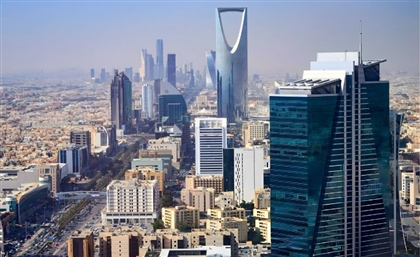Egypt’s New Investment Law: What To Expect
Egypt ratified the long-awaited investment law, providing more incentives and requiring simpler procedures. Here’s what we know.

Following financial nightmares leading to the flotation of the Egyptian currency, the presidency ratified the new Investment Law in June 2017 to replace an old law issued in 1997. How does that impact the startup scene? The main problem investors faced while the old law was being applied was bureaucracy; for one investor to issue a permit, it would take them an average of two years passing through more than 13 entities. Now, with the new Investment Law being implemented as of May 31st, investors should head to one entity; the Industrial Development Authority, where it should take them not more than two weeks to undergo the process of approval, registration, licensing and certification for new projects.
However, Nadia Henry, a parliamentarian in the Economics Committee, tells Startup Scene that the new Investment Law still doesn't address the big challenges Egypt is facing in terms of rehabilitating a good environment for investments. These problems will only be addressed by identifying Egypt's economical orientation, not through a law regulating investment, she says. "It has even changed the nature of the General Authority For Investments and Free Zones, which was always an independent body and has turned it into a supervisory entity," Henry adds. She also asks a rhetorical question: "Does the Investment Law guarantee a fair competition between the private sector and the government? This is the first thing a foreign investor asks."
Reform in Egypt tends to be easy to promise and much harder to deliver, the Economist argues; explaining that the administrative details are expected to take many more months to roll out. The Economist predicts that ministries will have to compete claims on the land that will be made available at discounted rates to investing firms; which is slated to take time. The new Investment Law sought ways to attract foreign investments; but these ways are both not suitable for both the political and financial phase Egypt is currently passing through and is actually not easily applicable, in the parliamentarian's opinion. "We need to work more on the law's philosophy and the investors' real problems such as swift responses in interventions to cease conflicts." Henry has also mentioned that in comparison to the rest of the world, Egypt is lagging behind in terms of merging technology in its bureaucratic databases; which is also something an investor considers when eyeing the Egyptian economy and investments environment.
On the other hand, the Ministry of Investment and International Cooperation has been trying to find a common ground between the state and entrepreneurs. In September 2017, the ministry established the startup accelerator Fekretak Sherketak in hopes to nurture the investment environment in a country thirsty for investments.“Supporting the growth of startups to compete globally is a key driver of economic growth and job creation and we recognized that gap in seed financing in Egypt,” said Minister of Investment and International Cooperation Sahar Nasr. “Fekretak Sherketak will harvest new and innovative ideas and our programme will help, support, and nurture entrepreneurs and startups to hit the ground running.”
Fekretak Sherketak provides funding from EGP 100,000 to EGP 500,000 for teams to turn their business ideas into a reality with between 4 to 8 percent equity stake in return. They support up to 30 companies per cycle in their accelerator program, as well as providing range of business, legal, technical, and entrepreneurial support.
“I believe new economic zones with tax exemptions and exports promotion are the good parts of the investment strategy and law that are important to the private sector to consider,” Multiples Group’s Managing Director Omar El-Shenety tells Startup Scene. According to Article 11 in the new Investment Law, the Prime Minister will designate geographic locations which most urgently need development and deduct 50 percent off investment costs for risk-taking investors who are willing to pump money in these underdeveloped areas. As for small, medium enterprises and projects which depend on or produce the new and renewable energy, among other industries, they get a 30 percent off of investment costs and their equipment would not be subject to taxes or customs duties.
According to the new law, small and medium enterprises will receive a 2 percent overall customs tax exemption on the value of imported equipment and machinery. They will also be exempted from stamp tax and registration fees on articles of association, mortgages, loan agreements, and land contract notarisations related to their investment. However, in the same article published right after the bill was passed, the Economist argues that the new law's "lavish" tax breaks may not play well politically when the government is facing a budget deficit of 10 percent of Gross Domestic Product. To everyone's discontent, the government has been forced to impose spending cuts, notably to fuel and bread subsidies.
Main photo: Minister of Investment and International Cooperation Sahar Nasr at the RiseUp Summit 2017.
Photo by @MO4Network's #MO4Productions.
- Previous Article UAE's First "du" Startup Challenge Kickstarts on April 3rd
- Next Article 8 Wonder Women Entrepreneurs Crossing Milestones in Jordan






















